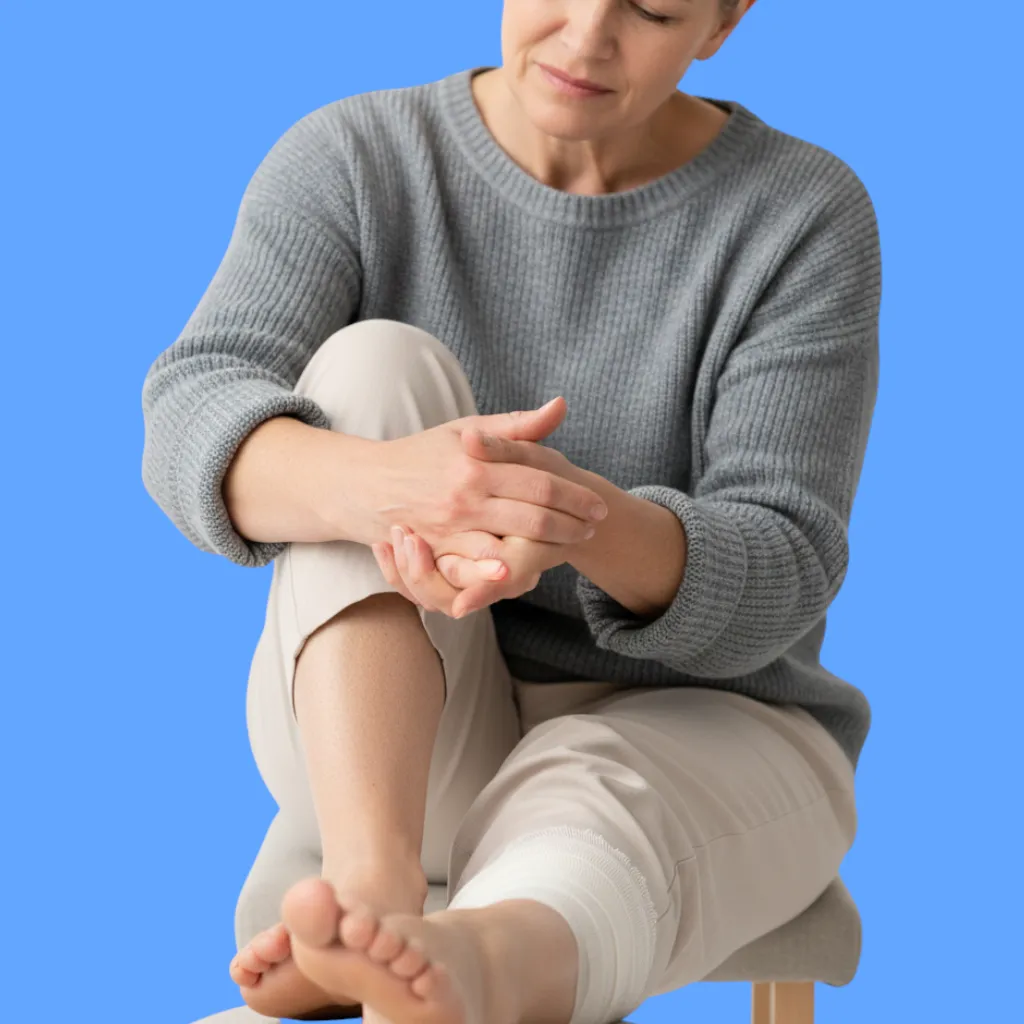what is rheumatoid arthritis؟
rheumatoid arthritis is a chronic autoimmune disease that primarily affects the joints it occurs when the immune system mistakenly attacks the healthy tissues of the body
it often begins in the small joints such as those in the hands and feet causing chronic inflammation swelling and pain that may lead to joint deformities over time in some cases
the disease can extend its impact to other organs like the heart lungs and eyes what makes rheumatoid arthritis unique is that it typically affects joints on both sides of the body symmetrically and appears in episodes of varying intensity
what are the causes of rheumatoid arthritis:
there are several common causes of rheumatoid arthritis including:
- immune system dysfunction that leads it to attack joint tissues
- genetic factors that increase the risk of developing the disease
- aging especially after the age of forty
- women are more likely to be affected
- smoking or exposure to cigarette smoke
- obesity and excess weight
- exposure to certain viruses or infections
what are the common symptoms of rheumatoid arthritis؟

patients may experience several common symptoms such as:
- chronic joint pain especially in the hands and feet
- joint stiffness particularly in the morning
- joint swelling and difficulty moving
- unexplained fever
- weight loss and persistent fatigue
- symptoms appearing in the same joints on both sides of the body
- changes in joint shape over time
when should you see a doctor؟
it is recommended to consult a doctor promptly if any of the following occur:
- joint pain lasting more than two weeks
- noticeable joint swelling
- difficulty performing simple daily tasks
- morning stiffness lasting more than an hour
- symptoms appearing in more than one joint at the same time
how is rheumatoid arthritis diagnosed؟
the disease is diagnosed using several methods including:
- clinical examination to assess symptoms
- rheumatoid factor test
- anti ccp antibody test
- esr and crp tests to detect inflammation
- x rays or mri to identify joint damage
how is rheumatoid arthritis treated؟
there are several treatment options for the disease including:
- pain relievers such as ibuprofen and naproxen
- corticosteroids to reduce inflammation in acute cases
- disease modifying drugs like methotrexate and hydroxychloroquine
- biological therapies such as adalimumab and humira
- physical therapy to improve joint mobility
- surgery in advanced cases to correct or replace the joint
can rheumatoid arthritis be cured؟
rheumatoid arthritis cannot be completely cured but it can be managed with proper treatment and lifestyle changes symptoms can be reduced and complications prevented
early diagnosis and continuous medical follow up are key to improving quality of life
what are the prevention tips for rheumatoid arthritis؟
there are several tips to help prevent the disease including:
- avoiding smoking completely
- maintaining a healthy weight
- exercising regularly
- eating a balanced diet rich in omega 3 and vegetables
- reducing stress and psychological pressure
- consulting a doctor when early symptoms appear
what are the possible complications of rheumatoid arthritis؟
some complications may occur if the disease is neglected such as:
- joint deformities and loss of function
- osteoporosis
- heart and lung problems
- inflammation of the eyes or skin
- general weakness and chronic fatigue
- depression due to persistent pain
frequently asked questions about rheumatoid arthritis
is rheumatoid arthritis hereditary؟
yes and genetics may play a role in its development
can children get rheumatoid arthritis؟
yes and it is known as juvenile rheumatoid arthritis
does it affect organs other than joints؟
yes such as the heart lungs and eyes
does diet affect the disease؟
definitely anti inflammatory foods help reduce symptoms